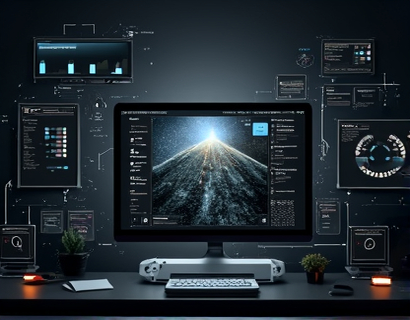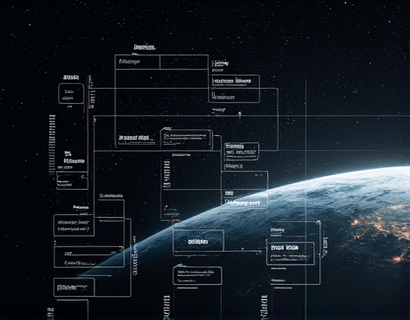Maximizing Civic Engagement through Real-Time Data Access and Open Governance
The advent of real-time data access and open governance represents a pivotal shift in the way governments interact with citizens, fundamentally transforming the landscape of civic engagement. This transformation is driven by the increasing availability of government data in real-time, which empowers citizens to participate more actively and informedly in democratic processes. By breaking down the barriers of information asymmetry, open data initiatives foster a more transparent, accountable, and collaborative government.
Understanding Real-Time Government Data
Real-time government data refers to the immediate and continuous release of information generated by government entities. This data encompasses a wide range of sectors including but not limited to, public health, transportation, education, environmental monitoring, and financial transactions. The key characteristic of real-time data is its immediacy, allowing citizens and organizations to access and utilize the most current information available.
The implementation of real-time data systems requires robust technological infrastructure, including data collection mechanisms, storage solutions, and dissemination platforms. Governments must invest in advanced IT systems capable of handling large volumes of data and ensuring its accuracy and reliability. Moreover, user-friendly interfaces and APIs are essential to facilitate easy access and integration of this data by third-party developers and applications.
Enhancing Transparency and Accountability
One of the most significant impacts of real-time data access is the enhancement of transparency and accountability in government operations. When government data is made available in real-time, citizens can monitor public spending, track the progress of projects, and assess the performance of public services. This level of transparency reduces the potential for corruption and mismanagement, as actions and decisions are subject to public scrutiny.
Accountability is further strengthened as citizens can hold officials responsible for their actions. Real-time data provides a factual basis for evaluating policy effectiveness and government performance, enabling citizens to engage in informed discussions and advocacy. This shift towards transparency and accountability is crucial for building trust between the government and its citizens, a cornerstone of a healthy democracy.
Fostering Informed Citizen Participation
Real-time data access empowers citizens with the information needed to participate meaningfully in the democratic process. Informed citizens are better equipped to engage in public debates, provide feedback on policies, and contribute to decision-making processes. This active participation is essential for a vibrant and responsive democracy, where governance is not solely the domain of elected officials but a collaborative effort involving all stakeholders.
For instance, real-time data on public health can enable citizens to make informed decisions about their well-being, while real-time transportation data can help commuters plan their routes more efficiently. In education, real-time performance data can assist parents and students in assessing school quality and making informed choices. These examples illustrate how real-time data can be leveraged to enhance various aspects of civic life.
Case Studies: Successful Real-Time Data Initiatives
Several cities and countries have successfully implemented real-time data initiatives, demonstrating the positive impact on civic engagement. One notable example is the City of New York's OpenDataNYC platform, which provides access to a wide array of city data, including crime statistics, budget information, and public health data. This platform has been instrumental in fostering a culture of transparency and has led to numerous civic projects and applications that utilize this data to benefit the community.
Another example is the Open Data Initiative in Singapore, known as Data.gov.sg. This initiative has transformed the way citizens interact with government data, offering a comprehensive repository of open data sets. The initiative has spurred innovation, with developers creating apps and tools that improve urban living, from traffic management to environmental monitoring. These success stories highlight the potential of real-time data to drive positive change in governance and civic engagement.
Challenges and Considerations
While the benefits of real-time data access and open governance are clear, several challenges must be addressed to ensure the successful implementation of these initiatives. Privacy and security are paramount concerns, as the release of real-time data can expose sensitive information. Governments must implement robust data protection measures to safeguard personal data and prevent misuse.
Additionally, the digital divide remains a significant barrier to equitable access to real-time data. Not all citizens have equal access to the internet or the technical skills required to utilize this data effectively. To address this, governments should invest in digital literacy programs and expand internet access, particularly in underserved communities.
Furthermore, the quality and reliability of data are critical. Inaccurate or incomplete data can lead to misinformed decisions and erode trust in government. Continuous efforts must be made to ensure data accuracy and provide context to help citizens interpret the information correctly.
Promoting Collaborative Governance
Real-time data access and open governance not only enhance transparency and accountability but also promote a collaborative approach to governance. By providing a platform for open data, governments can engage with citizens, businesses, and other stakeholders in a more meaningful way. This collaboration can lead to innovative solutions to complex problems, as diverse perspectives and expertise are brought to the table.
For example, crowdsourcing platforms that utilize real-time data can involve citizens in identifying and prioritizing community needs. Such initiatives not only improve the relevance and effectiveness of public services but also foster a sense of ownership and responsibility among citizens. This collaborative model of governance is essential for building resilient and adaptive communities.
The Future of Civic Engagement
The integration of real-time data access and open governance represents a transformative shift in the future of civic engagement. As technology continues to evolve, the potential for more sophisticated and user-friendly data platforms grows, further enhancing citizen participation. The key to success lies in the commitment of governments to transparency, the active involvement of citizens, and the continuous improvement of data quality and accessibility.
Moving forward, it is crucial for policymakers, technologists, and civic organizations to work together to overcome the challenges and fully realize the benefits of real-time data and open governance. By doing so, we can create a more informed, engaged, and empowered citizenry, ultimately strengthening the foundations of democracy.










































